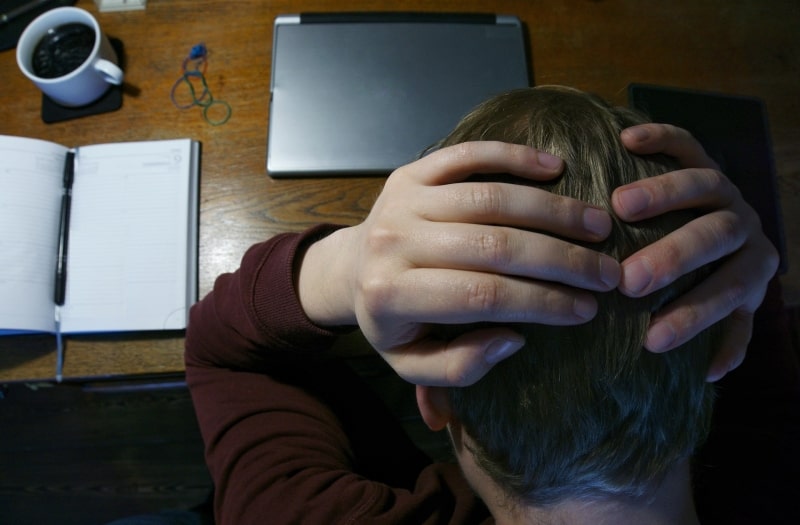Covid 19 Employment Law Series: Coronavirus and mental health at work.

During Mental Health Awareness Week employment barrister Claire Millns considers the detrimental effect that COVID-19 continues to have on our mental health, takes a brief look at the latest ACAS guidance on mental well-being, and speaks to Dr Victoria Miller, Consultant Clinical Psychologist, about what employers can do to support their employees at work at this time of national crisis.
The Royal College of Psychiatrists’ press release of 15 May 2020 is an unsettling read. 43% of psychiatrists surveyed reported an increase in urgent and emergency cases since the COVID-19 lockdown began. At the same time, in the same period 45% of psychiatrists have seen a fall in routine appointments. The forecast: a ‘tsunami’ of mental illness issues is on its way. (Read the report here).
Sadly, the picture presented in the May 2020 update on Personal and Economic well-being in Great Britain from Office for National Statistics (ONS) is equally worrying news for mental health. During the period 20 to 30 March 2020 the ONS found that almost half (49.6%) of people in Great Britain reported “high” (rating 6 to 10) anxiety; this was sharply elevated compared with the end of 2019 (21%), and equates to over 25 million people (out of the population aged 16 years and over). The same survey found that feelings of happiness and life satisfaction are substantially lower than before the COVID-19 pandemic. Unsurprisingly people’s most common concerns related to their well-being, their finances and their work. The full ONS report can be found here.
On Monday 18 May, at the start of Mental Health Awareness week, ACAS published its latest advice: Coronavirus and mental health at work (read here). The guidance note covers four short chapters covering how to look after your own mental health, supporting staff mental health, managing workplace mental health and a list of helpful online resources. The resounding message from the guidance is that good communication with and good care for employees are fundamental. It is essential reading for employers seeking to effectively manage the well-being of employees at a time of heightened susceptibility to mental ill health.
In these difficult times for mental health, and with a warning of more serious mental health problems ahead, it is critically important that employers comply with their legal duties to ensure the health and safety of their workers. Alongside general statutory and common law duties to take reasonable steps to protect employees from harm, an employer’s obligations to make reasonable adjustments for disabled employees under the Equality Act 2010 should also be at the forefront of their mind when making decisions about how to support and manage mental health concerns.
I spoke with Dr Victoria Miller, Consultant Clinical Psychologist at Newcastle upon Tyne’s Royal Victoria Infirmary, to gain her insight into some of the challenges employers face when dealing with employees affected by the coronavirus and lockdown.
Claire Millns: Why do you think there’s been an increase in mental health issues since the pandemic began?
Dr Miller: Normal coping strategies that people use to have good mental health such as socialising, connecting with people, exercising and having stability in their home and work life have all been disrupted due to lockdown. Alongside the reduction of everyday coping strategies, the pandemic also brings uncertainty and fear, in relation to health, employment and finances. People are dealing with reduced levels of social interaction, changes to working and family life and possibly bereavement.
CM: What are the tell-tale signs that suggest an employee is struggling with his or her mental health during the lockdown period and beyond?
DM: There are many symptoms which indicate an employee may be suffering with poor mental health or mental health conditions at work. Falling standards of work, a lack of focus or an increase in sickness absence are some of the more obvious symptoms. However, low mood, sleep disturbance, lack of pleasure in everyday things, and problems with concentration and memory are all further indicators. Further, excessive worrying, irritability and anger and difficulties keeping still or relaxing may suggest something is wrong.
CM: What are your top tips for employers dealing with employees who may be suffering the effects of poor mental health at work arising out the COVID-19 pandemic?
DM: Communication: As the ACAS guidance emphasises, good communication with your employees is important. If you feel that an employee is struggling, ask if they need support or refer them to occupational health if appropriate. Offer additional supervision if needed. Diarise regular catch ups. Offer furloughed employees and those working from home the opportunity to take part in the social side of work life by arranging online chats. If an employee is concerned about specific issues in the workplace to do with CVODI-19 issues take time to talk those through and understand what is troubling them. Spend time discussing any adjustments they may need to their working day, work load or workplace which might help ease the burden.
Promote good self-care: Do not make assumptions about the well-being of your staff. Ensure that all employees have access to basic necessities such as food, support and a safe place to work or be, especially if staff are working from home or furloughed. Not everybody lives in a happy and supportive environment; do not forget those that live alone who may feel particularly isolated and may need additional support.
Take the shame out of anxiety: COVID-19 is a real illness that kills. Anxiety about the disease is valid and should not be dismissed or under-estimated. The threat is a real one that needs to be acknowledged by employers openly but without in itself increasing anxiety. Recognise that each employee will deal with the risk differently. Be empathetic with every individual.
CM: Are there any other particular issues that you advise employers to watch out for when considering the mental well-being of their employees during the COVID-19 pandemic?
DM: I am concerned that employees suffering the effects of vicarious trauma may be missed or overlooked by employers. In my view this is likely to become a much greater issue for workplaces in the months to come. Vicarious trauma is secondary traumatic stress and means the transformation of trauma to the worker that results from working with traumatised people. For example, a manager dealing with a large workforce may listen to a number of difficult and traumatic stories from employees about the effect that the COVID-19 pandemic has had on their lives which in turn may cause the manager to suffer trauma symptoms themselves through something called countertransference. This is particularly prevalent in healthcare settings, although not limited to those settings. Such vicarious trauma may also lead to what is known as compassion fatigue which is general feeling of being overwhelmed, an inability to concentrate and reduced empathy which may then lead to depression and anxiety.
COVID-19 is already causing mental health problems among employees, will be exacerbating pre-pandemic mental health conditions, and is likely to lead to more cases as the pandemic and lockdown continue. Employers need to be aware of the tell-tale signs, encourage openness among employees and managers, and support those who may be suffering: all of that will help improve the wellbeing, security and productivity of employees. Employers who fail to take seriously the increased risk and incidence of mental health problems caused by COVID-19 do so at a cost to themselves and their employees.
Dr Miller has over 14 years’ experience in working as a qualified psychologist both in the NHS and her own private practice. www.greatmindspsychology.co.ukDr Miller specialises in adjustment, loss and trauma. Since the COVID-19 pandemic her work includes providing support to NHS staff working on the front line.










